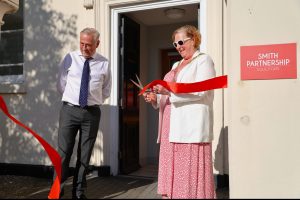Bank of England moves on QE

THE Bank of England today moved to quell fears about the declining economy by announcing a further extension of its Quantitative Easing programme.
The Bank’s Monetary Policy Committee has agreed to pump a further £50bn into the scheme, boosting the level to £375bn.
Some analysts had suggested the policy committee may react to the growing concerns about the health of the economy by cutting interest rates even further, possibly by 0.25%. However, this was resisted with the MPC opting to keep the rate at its historic low for a 40th consecutive month.
The extension of QE will hopefully go some way towards boosting output, which remained sluggish in June due to declining export levels brought about by the continuing upheaval in the Eurozone.
Economists had said the unsettling events on the continent could have the unwanted effect of further shrinking the economy here, making the prospects for the third quarter and beyond look gloomy.
Business organisations had called for the Bank to take action and bolster the economy but have also urged that the flow of money from QE is speeded up as its effects have yet to be felt in certain areas.
Mark Smith, regional chairman at PwC in the Midlands, said: “The decision to increase quantitative easing by £50bn is not unexpected, particularly as four of the nine members of the Monetary Policy Committee voted in favour of increasing the Asset Purchase Programme at last month’s meeting.
“Total revised GDP data last week confirmed that the economy has remained broadly flat for 18 months and for that reason, the further stimulus announced today is in line with market expectations. The Bank of England has also recently announced a ‘funding for lending’ plan, which is designed to encourage banks to free up available funds for more corporate loans.
“It is critical that these measures lead to increased appetite amongst corporates to borrow and lenders to lend. This two-way activity is vital to kick start growth in the economy.”
Michael Ward, president of Birmingham Chamber of Commerce Group, said the Bank should now look to invest in the “real” economy.
“The latest Greater Birmingham and Solihull quarterly economic survey revealed that domestic and export sales, while still growing, are beginning to slow as instability within the eurozone has dampened demand somewhat.
“Furthermore fewer businesses are reporting an improvement in their cashflow than in Q1. It was vital that we extended QE in order to improve liquidity within the economy.
“The chamber would like to see the MPC using QE to purchase corporate bonds rather than gilts as this would ensure that the benefit is better passed onto to private sector,” he said.









